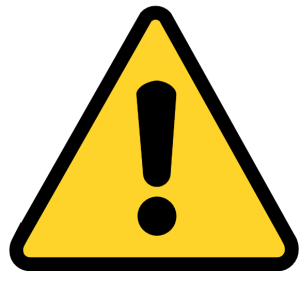Learn how to resolve “JLink Failed to Open File” Error. Our Server Management Support team is here to help you with your questions and concerns.
How to Resolve the “J-Link Failed to Open File” Error
 Running into the “J-Link failed to open file”” error can be frustrating. This error usually means that the J-Link software or hardware is unable to locate or access a specified file. This issue can be due to several causes like file permissions, incorrect file paths, hardware problems, or software conflicts.
Running into the “J-Link failed to open file”” error can be frustrating. This error usually means that the J-Link software or hardware is unable to locate or access a specified file. This issue can be due to several causes like file permissions, incorrect file paths, hardware problems, or software conflicts.
Today, we are going to explore the most common causes of this error and solutions to resolve it.
An Overview:
- Understanding J-Link and Its Use Cases
- Common Mistakes to Avoid When Using J-Link
- Common Causes of”J-Link Failed to Open File” Error
- Troubleshooting Steps
- Tools and Commands for Troubleshooting J-Link Errors
Understanding J-Link and Its Use Cases
J-Link is a powerful tool in the Java Development Kit. it allows developers to create custom runtime images. Its primary purpose is to generate smaller, optimized Java runtimes that include only the necessary modules required by an application, reducing the overall footprint and improving performance.
The jlink command is useful in cases where developers need to package a Java application with a tailored runtime environment, such as deploying microservices, creating lightweight containers, or distributing desktop applications. By selectively including modules, developers can ensure their applications run more efficiently in resource-constrained environments.
Common Mistakes to Avoid When Using J-Link
While using jlink, developers often encounter errors due to incorrect module paths, missing dependencies, or poorly structured commands. To avoid these pitfalls, we have to double-check the module paths for accuracy, verify that all necessary modules are specified, and follow the correct syntax for the jlink command.
Common Causes of”J-Link Failed to Open File” Error
- Incorrect File Path
The file path provided to `jlink` might be incorrect, or the file might not exist.
Fix: Verify that the path to the file (such as a module path or custom runtime image) is correct and that the file exists at that location. Double-check for any typos or errors in the file names and paths.
jlink --module-path /path/to/modules --add-modules my.module --output /path/to/output - Permission Issues
The file or directory may have restricted permissions, preventing `jlink` from opening it.
Fix: Check and adjust the file and directory permissions. Ensure that the user running the `jlink` command has the necessary read and write permissions. Use the following commands to modify permissions:
chmod +x /path/to/directory
- File Corruption
The file might be corrupted or incomplete.
Fix: Verify the integrity of the file. If the file is part of a module or JDK distribution, consider re-downloading or reinstalling it to ensure it is complete and not damaged.
- Incorrect `jlink` Command Usage
There might be an issue with how `jlink` is invoked or with the parameters provided.
Fix: Review the `jlink` command syntax and ensure that all required parameters are correctly specified. Here’s an example of a correctly formatted command:
jlink --module-path $JAVA_HOME/jmods --add-modules java.base,java.logging --output custom-runtime - File System Issues
Problems with the file system or disk where the file is located could be causing the error.
Fix: Check for file system errors or disk space issues.
- JDK Version Mismatch
The version of `jlink` might not be compatible with the modules or files being used.
Fix: Ensure that the `jlink` tool is compatible with the JDK version we are using. Check the JDK version and update it if necessary to resolve any compatibility issues.
Troubleshooting Steps
We can troubleshoot and resolve the “JLink failed to open file” error with these steps:
- Verify that all file paths are correct and that the files exist in the specified locations.
- Ensure that we have the necessary permissions to access the files and directories involved.
- Review the `jlink` command syntax and parameters to make sure they are correctly specified.
- Make sure there is sufficient disk space and that the file system is functioning properly without errors.
- Ensure that the `jlink` tool and the JDK version we are using are compatible; update if necessary.
Tools and Commands for Troubleshooting J-Link Errors
Here are some key utilities to help us troubleshoot effectively:
- Use tools like md5sum or sha256sum to verify file integrity. These commands generate checksums for files. This lets us compare them with expected values to ensure that the files are not corrupted or incomplete.
- Tools like chkdsk (Windows) or fsck (Linux) help identify and repair file system errors. Running these utilities ensures that the disk is healthy and free from issues that could affect file access.
- Commands like ls -l (Linux) or dir (Windows) can quickly reveal permission issues by displaying file ownership and access rights.
- We can use strace (Linux) or procmon (Windows) to trace system calls and monitor how jlink interacts with the system, providing detailed debugging output.
- Tools like echo or printenv display environment variables, such as JAVA_HOME, ensuring that jlink is using the correct Java environment settings.
[Need assistance with a different issue? Our team is available 24/7.]
Conclusion
With the above steps, we can find the root cause of the error and fix it in no time.
In brief, our Support Experts demonstrated how to resolve the “JLink Failed to Open File” Error.







0 Comments